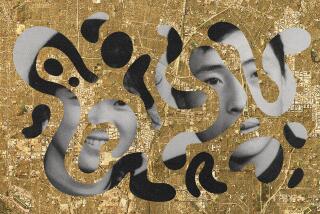Harry Kitano, 76; UCLA Professor, Expert on Race Relations
Harry H.L. Kitano, a UCLA social scientist and leading authority on race and ethnic relations, particularly Asian Americans’ experiences, has died. He was 76.
Kitano died Saturday of a stroke at Kaiser Permanente Hospital in West Los Angeles.
According to his wife, Lynn, Kitano had spent the morning working on the sixth edition of his classic textbook, “Race Relations,” in his Santa Monica home.
During Kitano’s more than four decades at the university, he served as co-director of UCLA’s Alcohol Research Center and twice as acting director of the Asian American Studies Center, the nation’s largest facility for such research. In 1990, he became the first recipient of the endowed chair in Japanese American studies at UCLA, the only academic chair of its kind in the United States.
He was a pioneer in community research studies of interracial marriages, juvenile delinquency, mental health and alcohol abuse among the rapidly growing, diverse Asian Pacific American population.
Political scientist Don T. Nakanishi, director of the Asian American Studies Center, said Kitano was committed to guiding sound public policies on many compelling community issues that had long been overlooked because of the misinformed notions that Asian Americans were a model minority without social needs and concerns.
Mitchell Maki, acting dean of the College of Health and Human Services at Cal State Los Angeles, and one of Kitano’s many former students, said Kitano’s work was instrumental in Asian Americans embracing their identity.
“He was very adept at being able to describe how things once were, how things are now, and most important, how things could be,” said Maki. “It was that vision of how things could be -- his vision of a fair, democratic, multicultural society -- that was so inspirational to many of us.”
Scholars said Kitano’s first book, “Japanese Americans: The Emergence of a Subculture,” was the first in-depth, sociological analysis of the Japanese American experience. Its publication in 1969 catapulted him to celebrity status in both the academic and public arenas, and he became a sought-after speaker.
His last book, “Achieving the Impossible Dream: How Japanese Americans Achieved Redress,” which he wrote with Maki and S. Megan Berthold, analyzed how key elected officials and community organizations went about achieving redress and a national apology for the 120,000 people of Japanese ancestry who were confined during World War II.
A native of San Francisco, Kitano grew up in San Francisco’s Chinatown, where his immigrant parents ran a hotel. After the bombing of Pearl Harbor on Dec. 7, 1941, he and his family were ordered to leave their home. They first were sent to the Santa Anita racetrack in Arcadia, where they lived in a horse stall for six months, then to the Topaz internment camp in Utah, where they remained from 1942 to 1945.
When he was released from Topaz, Kitano did not return to the West Coast, fearing lingering racial hostility. He changed his name to Harry Lee and traveled to Milwaukee, where he worked briefly as a farmhand. Moving to Minnesota, he played trombone with several jazz bands, where he had worked with African American musicians. He returned to the Bay Area in 1946 and, though he hadn’t been able to finish high school because he was interned, attended UC Berkeley, where he earned degrees in sociology and social work and a PhD in education and psychology.
Despite his success in academe, music remained his passion. His taste ran from jazz to classical to Michael Jackson.
An incurable romantic, Kitano watched the movie “Dr. Zhivago” a dozen times, and “cried every time,” said his wife Lynn Kitano.
On May 6, 1997, Kitano was the keynote speaker at a special ceremony to award high school diplomas to Japanese Americans who were pulled out of school because of the war.
“I do things backward,” Kitano told the gathering. “I got a PhD first and then I got my high school diploma.”
In addition to his wife, Kitano is survived by five children, Keith, of Tokyo; Kimberly and Kerrily, both of San Francisco; Kraig, of Los Angeles; and Christine, of Santa Monica; and one grandson.
A public memorial will be held Dec. 14 at 10:30 a.m. at the UCLA Faculty Center. Donations can be made to the Harry Kitano Scholarship Endowment/UCLA Foundation, c/o UCLA Asian American Studies Center, P.O. Box 951546, 3230 Campbell Hall, Los Angeles, CA 90095-1546.
More to Read
Sign up for Essential California
The most important California stories and recommendations in your inbox every morning.
You may occasionally receive promotional content from the Los Angeles Times.










